Paralympics an instrument for inclusion - by Shivani Gupta - Senior Inclusive Design Manager at GDI Hub
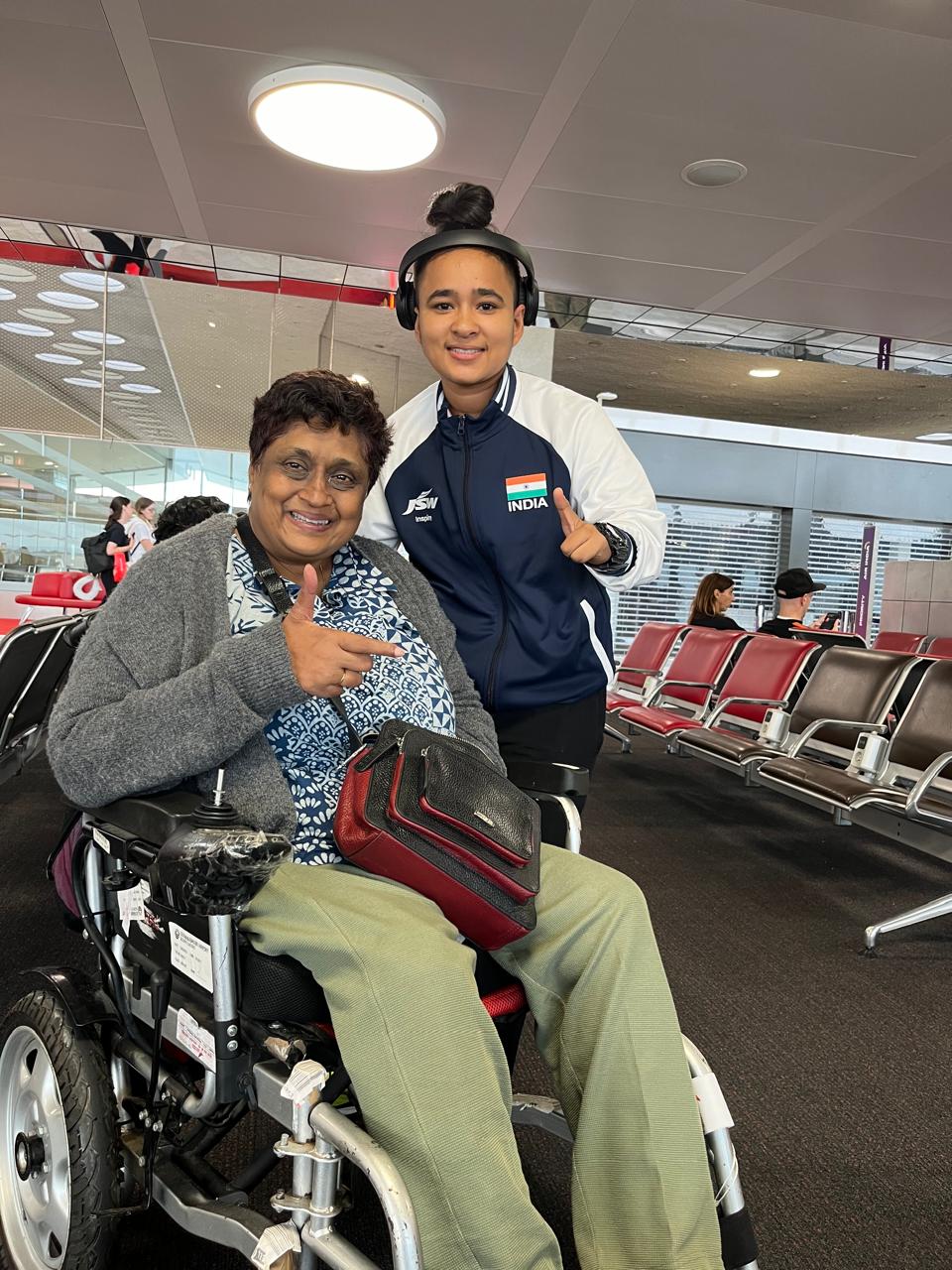
Shivani with Paralympian Aruna Tanvar at GDI Hub reception in grand room, smiling at the camera
What started as the Stoke Mandeville Games held with the Rome Olympics in 1960, featuring 400 athletes from 23 countries competing in eight sports, today has evolved to become the most spectacular celebration of diversity. The 2024 Summer Paralympics in Paris hosted around cross-disability 4,400 athletes competing in 549 medal events across 22 sports from 150 countries.
This long evolution had many milestones, including the fact that in 2001, the International Olympic Committee and the International Paralympic Committee made a historical agreement to “one bid, one city,” in which every city that bids to host the Olympics also bids to hold the related Paralympics. This spurred the inclusive infrastructure development in each city where the Olympics were organised.
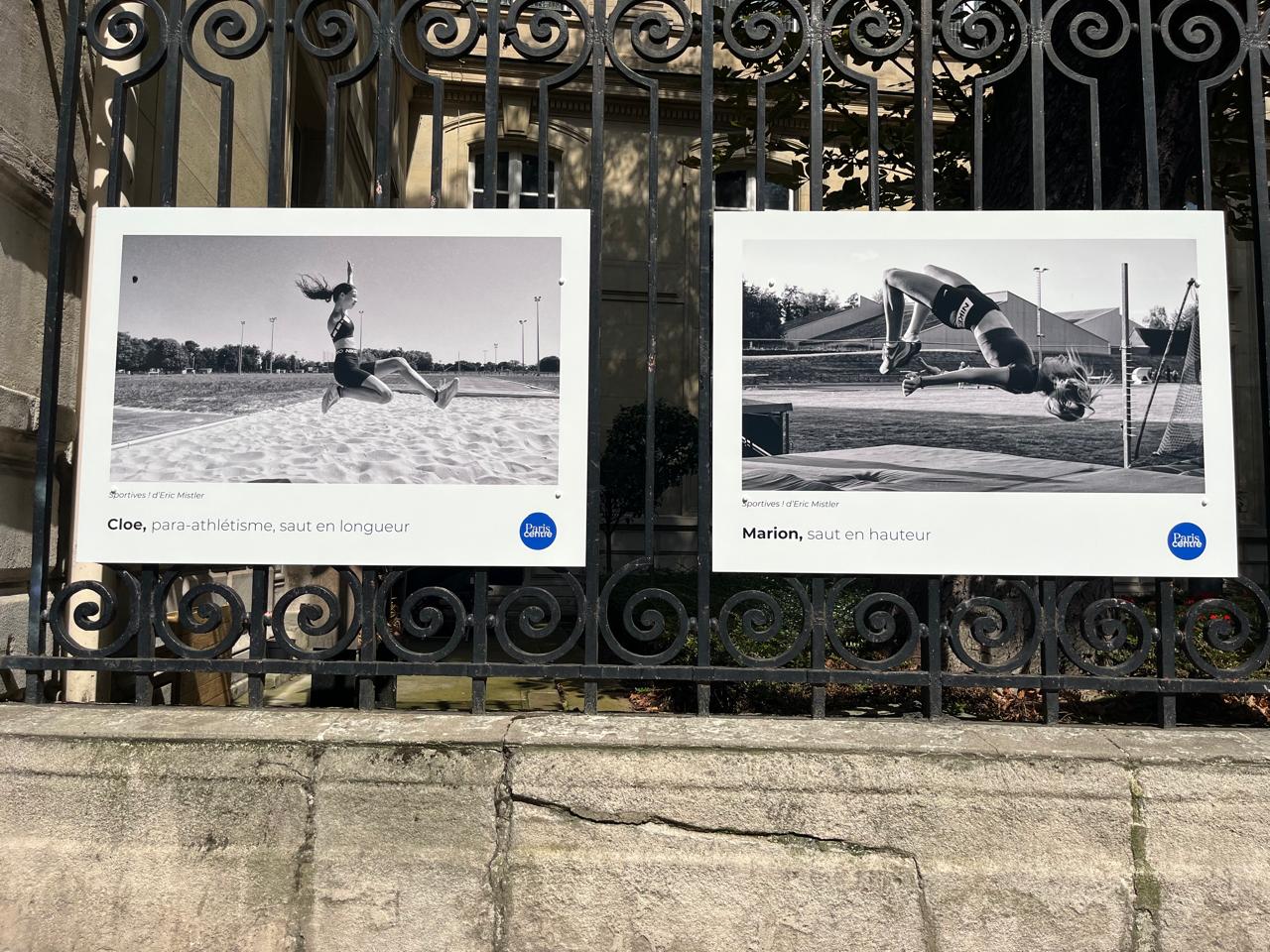
Paralympic posts in Paris - showing history of the games.
The Paralympics have been acatalyst in changing society and promoting inclusion. The Paralympics have ignited country governments to focus on citizens with disabilities in various ways. For instance, the 2008 Paralympic Games in Beijing made China more inclusive, propelling it to be one of the first signatories of the Convention on the Rights of Persons with Disabilities. Brazil is said to have introduced new legislation and a new transport system that is inclusive to all in Rio while preparing for the games. The Tokyo 2020 Paralympics Urban planning led to greater ground-up urban planning and development[1] and raised awareness of diversity among citizens. Making tourist sights accessible has been an important aspect addressed while preparing for the Games in all host countries.
The 2012 London Paralympics are known to have produced incredibly positive results, not just during the Games but even afterwards and are known for the legacy of the Games. The Global Disability Innovation Hub is one of the legacy outcomes of the London Olympics, born on the eve of the Rio Paralympics. I am proud to be a part of this vibrant organisation and was fortunate to attend the 2024 Paralympics, Paris as a part of the team. In this blog, I will share some positive reflections on how the Games transformed the city and beyond to be more inclusive.
I was privileged to fly with the Indian Paralympic team to Paris. Frankly, it just happened, and I only realised it at the time of boarding. The sheer commitment and determination to play and win for their country that each of the over 40 players on that flight exhibited created an amazingly positive atmosphere. Aruna, a young Taekwondo player, expressed that being there representing the country is the biggest thrill she feels. The team has made the country proud by winning over 29 medals. The side benefits of travelling with the team were that at the Paris Charles de Gaulle Airport, I got VIP immigration as I rolled my wheelchair behind the team.
After an unpleasant previous experience, I can safely say that Paris has improved its sensitivity towards people with disabilities due to hosting the Games. The city used the games to raise awareness about disability. Another positive personal experience was when the waiter in the restaurant very subtly cut my food, realising I couldn’t use my left hand, something I had never experienced before but appreciated.
The Paralympics were screened on a big screen installed in the community where we went to see the opening. It was a unique experience for me, as it was only once before that I had watched a film on a screen in a community park. But sports are different! What impressed me was the large number of people who could do it. Again, it was an excellent way for Paris to raise awareness about disability within the community.
What hit me during the ceremony were the country delegations with just two or three participants, delegations from Ukraine, Palestine, and the Refugee Paralympic team, who contested at the Games. I know well how difficult it can be for people with disabilities when resources are scarce. Seeing these teams at the Paralympics symbolised their perseverance and the support of their government, something the spectators valued and cheered the most for.
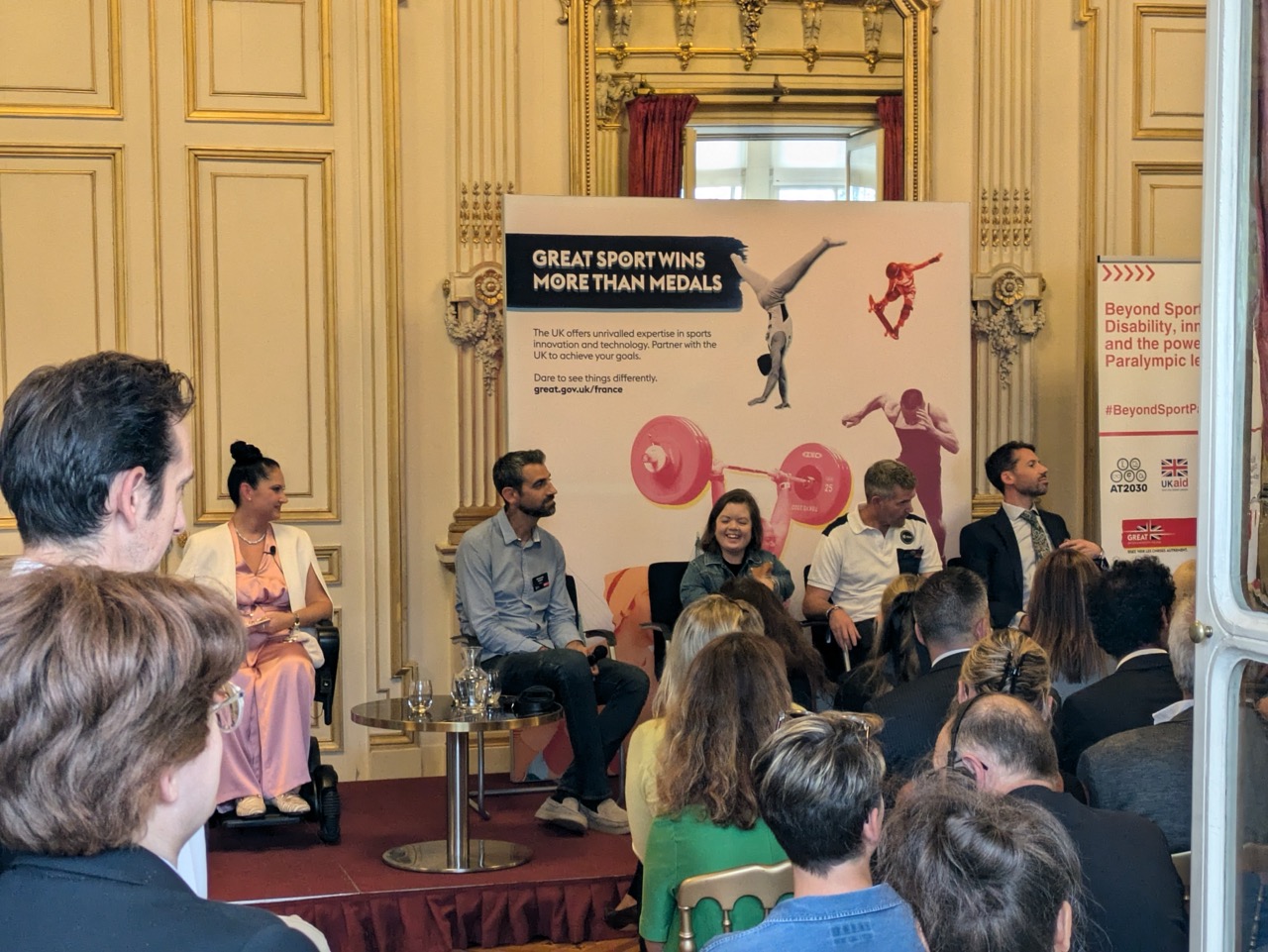
Plenary session during the Beyond Sport event
The Paralympics opened the doors of the British Ambassador’s residence in Paris, whograciously hosted an inspiring 'Beyond Sport' panel and reception. The resident team had worked hard to make the historic residence building accessible. It was the first time I had a red carpet experience with the ramp at the entrance. The staff was willing to take feedback for improvement in the infrastructure. One could see it was not just words but something they planned to take seriously.
Attending the Paralympics, however, showed me how the Games are so much more than just medals and country tallies. They are a vehicle fostering inclusion not only in the country that hosts them but also in all those countries that participate. They are linked to inclusive environments and tourism, encouraging countries to make inclusive investments. They are also very political, pushing governments to pass new legislation and drawing their attention to persons with disabilities in their country. I have never been interested in sports, but this experience changed that. On a lighter note, don't be surprised if you see me competing at the 2028 Paralympics at Los Angeles!
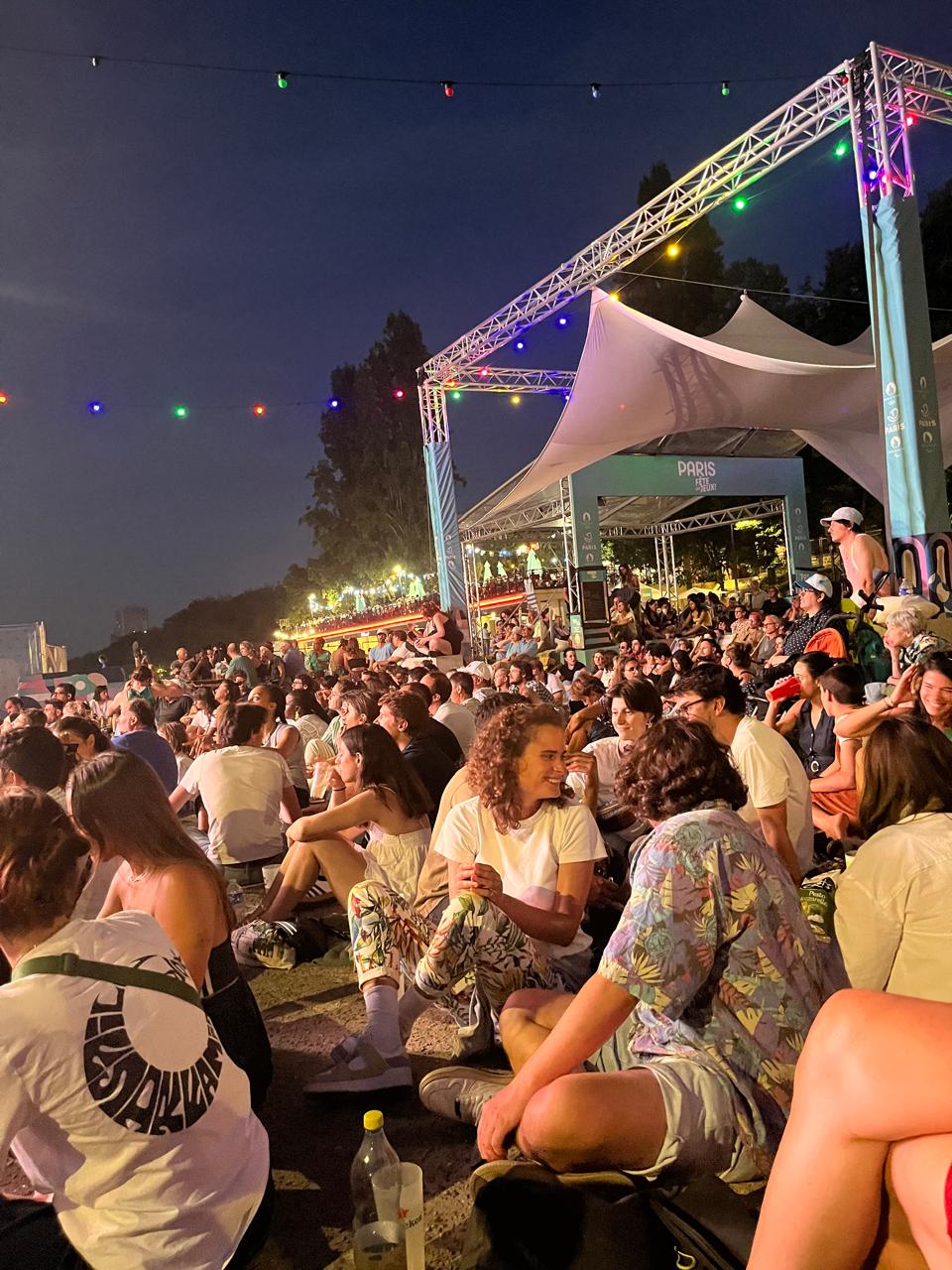
Image of the fan park for the opening ceremony in Paris with large community attendance, sitting watching big screen
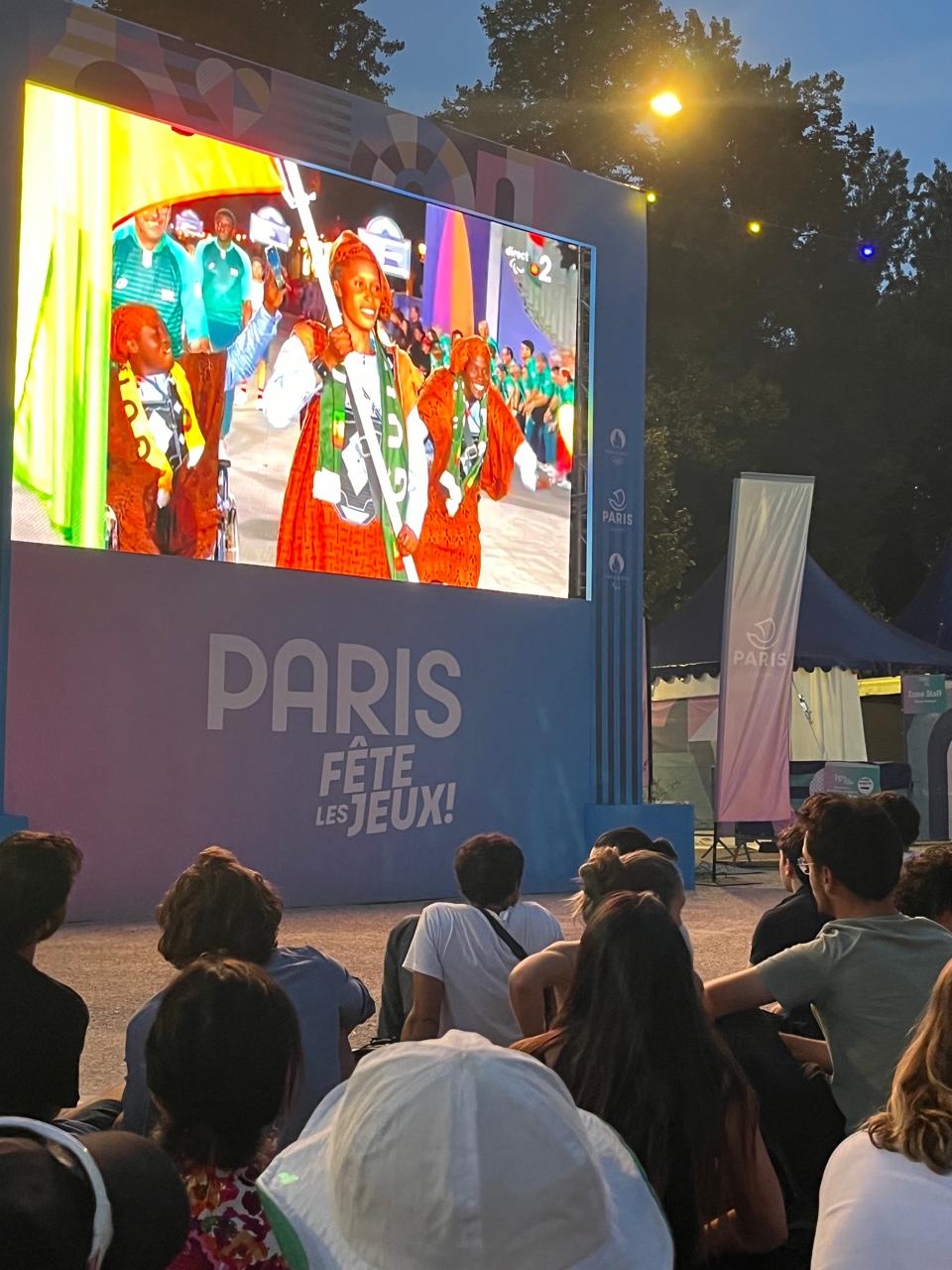
Opening ceremony being show on a large screen in fanpark
[1] Faure, A. (2023). How the Tokyo Olympic and Paralympic Games were embedded in urban planning documents: The enforcement of a metropolitan strategy in the Bay Area. Contemporary Japan, 35(1), 136–157. https://doi.org/10.1080/18692729.2023.2169462